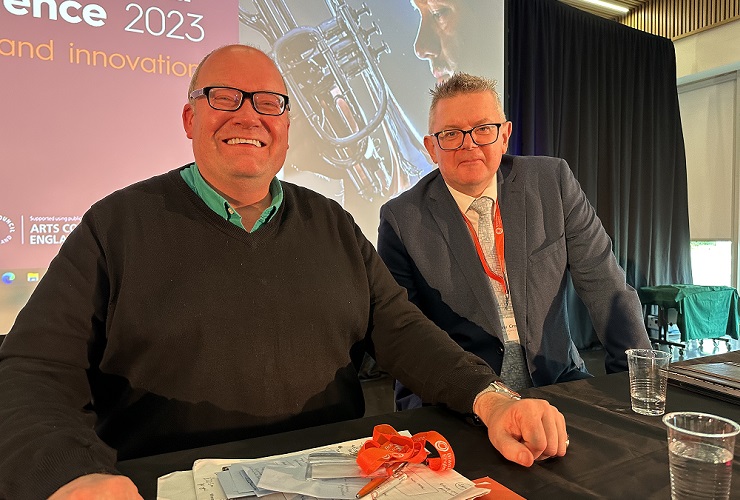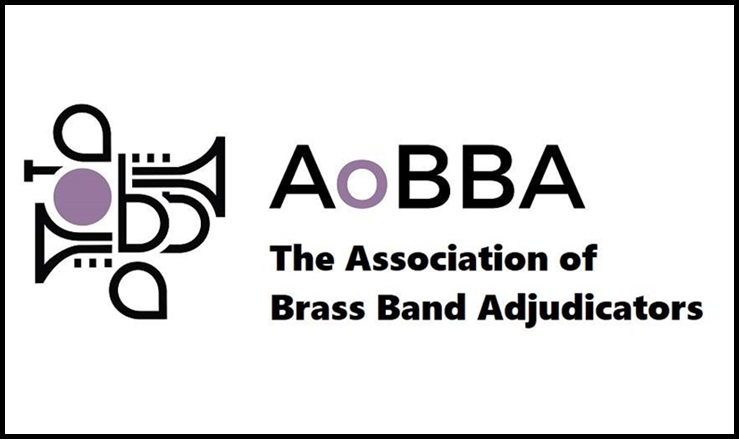
Just weeks after an absorbing Brass Bands England Conference that provided encouraging evidence of the desire to free ourselves of myopic insularity, the UK banding movement once again finds itself embroiled in arguments about issues that hold little relevance to the wider musical world.
That said, the news of a potential UK Elite Band Forum to represent bands in future discussions with contest organisers and organisational bodies, as well as the issue of adjudicator integrity remain topics worthy of the type of informed debate found in Huddersfield.
Unfortunately, to those observing from outside the walls of competitive music making they still appear to be the recurring result of a form of institutional amateurism that over decades has been allowed to strangle the progressive outlook of the banding movement in the UK.
Big picture thinking
That was evident when wider issues were explored at the BBE Conference – first in a coruscating keynote speech by composer Gavin Higgins, followed by searching questions to Darren Henley CBE, CEO of Arts Council England, and then in various sessions throughout an enlightening and positive day of ‘big picture’ thinking.

Darren Henley CBE was asked numerous questions at the recent BBE Conference
Offered hope
It offered hope of establishing new pathways and links to artistic and organisational excellence – yet within weeks we find ourselves once again enmeshed in destructive arguments and accusations over what Edward Gregson so memorably termed the ‘contesting minutiae’ of self-protectionism and conflict of interest.
The challenge then is how do those involved look beyond perceived confines and obstacles and embrace a new sense of progressiveness – especially on the very topics on which they (the bands and judges) are linked?
The challenge then is how do those involved look beyond perceived confines and obstacles and embrace a new sense of progressiveness – especially on the very topics on which they (the bands and judges) are linked?
For one, they could take a lesson from Brass Band England in that respect – far from perfect by any means with its critics, but still confident enough to address issues openly and constructively.
Considerable interest
For the time being there will be considerable interest in the initial outcome of the first meeting of the new UK Elite Brass Band Forum in Birmingham later this week.
At present it has around 16 or so signatories who have agreed to a mission statement that, “…seeks to work in cooperation with contest promoters, administrators and owners on areas of mutual benefit directly affecting the current and future promotion and development of major contests and events for bands at all levels."

Can the new UK Elite Band Forum point things in the right direction?
Starting point
Its starting point though is to be able to set-up a representative body that has both the trust of its future membership as well as the respect of those whom they wish to engage in dialogue with.
Only then can it look to provide the type of coherent arguments for beneficial change in the contesting environment, as well as develop member interests in other artistic fields. It will however need very careful thinking, and even more reasoned action.
If all it has to offer is a strategy that is nothing more than the equivalent of standing outside the offices of Kapitol Promotions or the British Open waving placards and shouting “We want change! When do we want it? Now!”, their protests will simply, and rightly, fall on deaf ears.
If all it has to offer is a strategy that is nothing more than the equivalent of standing outside the offices of Kapitol Promotions or the British Open waving placards and shouting “We want change! When do we want it? Now!”, their protests will simply, and rightly, fall on deaf ears.
The challenges faced by the major contest promoters are daunting in looking to secure their futures at leading venues over the next 10-15 years. The bands themselves have a major part to play in helping them do that – working in partnership to create foundations based on financial and organisational sustainability and transparency.
Feed the birds
There is much more then to successful collective bargaining than merely voicing post-results indignation through meaningless slogans, conspiracy theories and veiled threats.
Rely on that approach and they will find that as one famous political figure once observed: “It’s aways good to listen out for where the small birds come to feed. It’s so that you can feed them your crumbs.”
Rely on that approach and they will find that as one famous political figure once observed: “It’s aways good to listen out for where the small birds come to feed. It’s so that you can feed them your crumbs.”
Encouragingly, speaking to those driving the forum idea, there are firm signs that thoughtful acumen will prevail to gain long term sustenance. Reasoned dialogue, well researched alternatives and communal participation may be harder aims and objectives to achieve to help secure immediate gains, but the lasting benefits for all will be considerable.

Conflicts of interest
Everything else can then be built on that – including constructive dialogue on test-piece strategies and commissioning, to adjudicator choices and perceived conflicts of interest.
To the wider musical world brass band judging seems archaic, with trust being the overriding issue behind closed adjudication. They are right of course.
It also remains the perennial bete-noire of bands (go through the history books), although in recent years it has become an argument laced by personal animosity and distrust that at times displays a blunt edge of undisguised petulant entitlement.
It also remains the perennial bete-noire of bands (go through the history books), although in recent years it has become an argument laced by personal animosity and distrust that at times displays a blunt edge of undisguised petulant entitlement.
It has now come to a head following the recent National Final at the Royal Albert Hall, with the Association of Brass Band Adjudicators publishing a statement in a bid it says “to provide clarity on our position”, yet in many ways simply adds fuel to ever smouldering embers that have the potential to engulf banding in the UK in amateurish self-immolation.
Pontius Pilate
They state that: “AoBBA’s constitution places responsibility very firmly on the contest organiser’s shoulders. The adjudicator is duty bound to inform the contest controller as soon as a conflict of interest is known, and then it is up to the contest to decide how to proceed.”
It is a Pontious Pilate strategy – washing the hands of collective responsibility as the perceived governing body and placing the emphasis of decision making back on someone else.
It is a Pontious Pilate strategy – washing the hands of collective responsibility as the perceived governing body and placing the emphasis of decision making back on someone else.
All it asks the contest organiser to consider is two questions: Does the person in question have the skill set to do the job, and do you trust them to do it?

Ultimate responsibility
Many would argue that the individual should take the ultimate responsibility in asking those questions of themselves, but why should they if their own representative body’s constitutional guidance is weak and lacking in corporate responsibility.
Little wonder some members have or are considering their position with them.
Many would argue that the individual should take the ultimate responsibility in asking those questions of themselves, but why should they if their own representative body’s constitutional guidance is weak and lacking in corporate responsibility.
To its credit though, AoBBA goes on to state that: “Any member of AoBBA can propose any change to the constitution up to fourteen days before the AGM, by contacting the secretary, where the proposal will be discussed and voted upon. The AGM takes place in January of each year, with the next one scheduled for January 2024.”
Renewed focus
It will be interesting to see if any member will to stick their head above the parapet and propose a change that will clearly prohibit an AoBBA member taking on a role that has a direct or indirect conflict of interest.
It won’t stop contest organisers employing non-AoBBA members of course, but hopefully it will also lead to reasoned, well-argued debate that should also include the representatives of the newly formed UK Elite Band Forum.
Two bodies with a renewed focus of helping the banding movement and enhancing its profile and respect in the wider musical world should be encouraged and welcomed by all.
Iwan Fox













